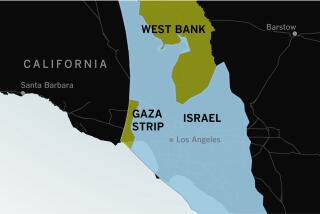Chile’s 9/11 -- and the legacy of Gen. Pinochet
Thirty-five years ago today on a different 9/11, army Gen. Augusto Pinochet overthrew the democratically elected government of Socialist President Salvador Allende in Chile. Since that day, two issues have continued to generate contention: Should Pinochet be remembered merely as a tyrant who became an international symbol of repression, or as an economic reformer who turned Chile into a global success; and to what extent did the U.S. government bring about his dictatorship?
Many of those who backed the 1973 coup had wanted the armed forces to simply restore order and then call for elections. Pinochet did initially bring about order after a period of instability and chaos. But having seized power -- joining the coup at the last minute -- he decided to keep it. He ordered the murder of union leaders, the exile of thousands of dissidents, the torture and disappearance of political prisoners, the terrorist bombing of exiled leaders -- including the 1976 assassination of former Chilean Ambassador Orlando Letelier and his U.S. citizen colleague, Ronni Karpen Moffit, in Washington -- and created a state of internal war.
But during that time, he also transformed Chile economically. Pinochet was a pragmatist who, faced with a broken economy, introduced major free-market reforms inspired by University of Chicago Nobel laureate Milton Friedman. Inflation was drastically reduced, state-owned businesses and social security were privatized, the financial system was deregulated, external tariffs were lowered and non-traditional exports fostered.
By the end of the decade, the Chilean economy had become one of the most prosperous in Latin America and the inspiration for the “Washington Consensus,” the set of rules recommended for countries wishing to “put their houses in order” and grow.
There was a social cost though: Income distribution deteriorated, and Chileans living under the poverty line climbed from 20% in 1970 to almost 40% by the end of Pinochet’s rule.
The real economic miracle occurred after Pinochet, between 1990 and 2007, when his reforms were legitimized and improved through democratic debate and consensus. Successive governments also made many of those reforms more palatable with heavy social investment to help those left behind during the Pinochet era. As a result, growth rates almost doubled those of the preceding three decades, and poverty was cut by more than half
In 1988, Pinochet lost a plebiscite in which Chileans voted “no” to his remaining in power for another eight years. It became clear that night that military commanders would not join him in another coup and that his supporters would choose to preserve the neoliberal economic model over his personal rule. Elections were held in 1989, and he grudgingly handed over the presidency to the democratic opposition in 1990. He recognized that he had to relinquish part of his authority if he was going to retain any, continuing as army chief and, later, as senator for life.
Looking back, Pinochet was only partly Chile’s creation. In the polarized global context of the late 1960s, before Allende was president, and, in the early ‘70s, after his election by a slim plurality, many leftists pressured Allende with unrealistic demands for revolutionary change. This collided with the uncompromising stand of a formerly pragmatic political center and with the ferocious defense of the status quo by the right. Add to this the Nixon administration’s two-track policy in 1970 to deny Allende the presidency: a plot to foil his ratification by Congress and the fomenting of a coup by some military officers and right-wing civilians, aided by CIA money and weapons.
When that failed, the White House declared a silent war to destabilize the Allende administration: slashing aid, denying export credits, refusing to renegotiate the Chilean debt, discouraging investment by American businesses and covertly funding strikes and terrorist actions against the government. Allende’s Chile was judged a threat by President Nixon and his national security advisor, Henry Kissinger.
So, although the coup that put Pinochet in power was Chilean made, it was U.S. sponsored. “Our hand doesn’t show on this one,” said Nixon to Kissinger, according to transcripts of conversations between the two in 1973 -- made public only in 2004. “We didn’t do it,” Kissinger replied. “I mean we helped them ... created the conditions as great as possible.”
But Washington, like a sorcerer’s apprentice, had helped unleash forces that it could not control.
Pinochet, assuming he enjoyed unconditional support from his anti- communist U.S. partner -- after Nixon embraced him following the coup -- ordered terrorist strikes against Chilean dissidents around the world.
Pinochet turned against the United States when subsequent administrations demanded justice in the Letelier case. And as Cold War tensions faded, he became expendable.
In 1998, a judge in Spain issued an arrest/extradition warrant for Pinochet in connection with the slayings of political prisoners, and the former dictator was arrested in London. He was returned to Chile, where he was hounded by those seeking justice up until his death in 2006, although he was never sentenced for his crimes.
Pinochet’s memory still conjures up different meanings for different people. Some still view him as the leader who transformed Chile into a prosperous economy -- despite the human and social costs. But as Chile continues to prosper under democratic rule, Pinochet more likely will be remembered as a notorious symbol of repression, one that casts a shadow on the history of U.S. foreign policy.
Heraldo Muñoz, a dissident during the Pinochet era, is Chile’s ambassador to the United Nations and the author of “The Dictator’s Shadow: Life Under Augusto Pinochet.”
More to Read
Start your day right
Sign up for Essential California for news, features and recommendations from the L.A. Times and beyond in your inbox six days a week.
You may occasionally receive promotional content from the Los Angeles Times.






